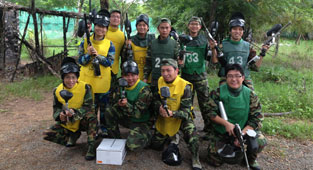//[LINUX][Lesson 0] Overview Introduction
[LINUX][Lesson 0] Overview Introduction
1. Document for research :
– Linux Reference Links:
- https://www.k4.dion.ne.jp/~mms/unix/linux_com/
- https://www.dais.is.tohoku.ac.jp/~koike/tips/linux_command.html
- Linux Command: https://linuxcommand.org/
2. Some basic Linux commands
File / Folder:
- vi [file]: edit the content of a file.
- rm [file]: delete a file.
- cp (or scp) [file] [to_file]: copy a file.
- file [file]: display information about the content of a file.
Other:
- clear: clear the terminal screen.
- ls (or ll) [dir]: list the contents of a directory.
- cat [file]: display the contents of a file in the terminal.
- passwd: change password.
- less (or more)[file]: display the contents of a file in the terminal, one page at a time.
- info: display information and documentation on shell, utilities, and programs.
- grep [“String”] [file]: search for a string within a file.
- head [file]: display the first 10 lines of a file.
- tail [file]: display the last 10 lines of a file.
- mv [file] [new_file]: move or rename a file.
- echo [“String”]: copy a string to the terminal.
- date: display the current date and time.
- cal: display the calendar.
- gzip [file or folder]: compress a file or folder.
- gunzip [file or folder]: decompress a file or folder.
- who: display the users currently logged in.
- finger [username]@[server]: collect detailed information about the user currently using the system.
- w: display users logged in with their running processes.
- mesg y/n: set options to allow other users to send messages to you.
- write [username]: send a message to another user.
- talk username: allow two users to chat with each other.
- chmod [permissions] [file]: change the access permissions of a file.
- mkdir [folder_name]: create a directory.
- rmdir [folder]: delete an empty directory.
- top: display a list of all running services.
- kill [PID] or [number %job]: stop a service by its PID (Process Identification Number) or job number.
- jobs: display a list of current jobs.
- netstat: display network connections.
- nslookup: query DNS servers.
- hostname: display the system’s hostname.
- rlogin [server]: utility for connecting to a remote system.
- telnet [server]: utility for connecting to a remote system (similar to rlogin but with better interaction).
- rcp [file] [server]: used to copy files from a remote computer.
- ftp: utility for transferring files between systems on a network.
- rsh [command]: utility for running a command on a remote system without logging in.
- ping [server]: utility for checking the connection to a remote system.


![[LINUX][Lesson 0] Overview Introduction](https://rivercrane.vn/wp-content/uploads/2014/05/share-300x123.jpg)








